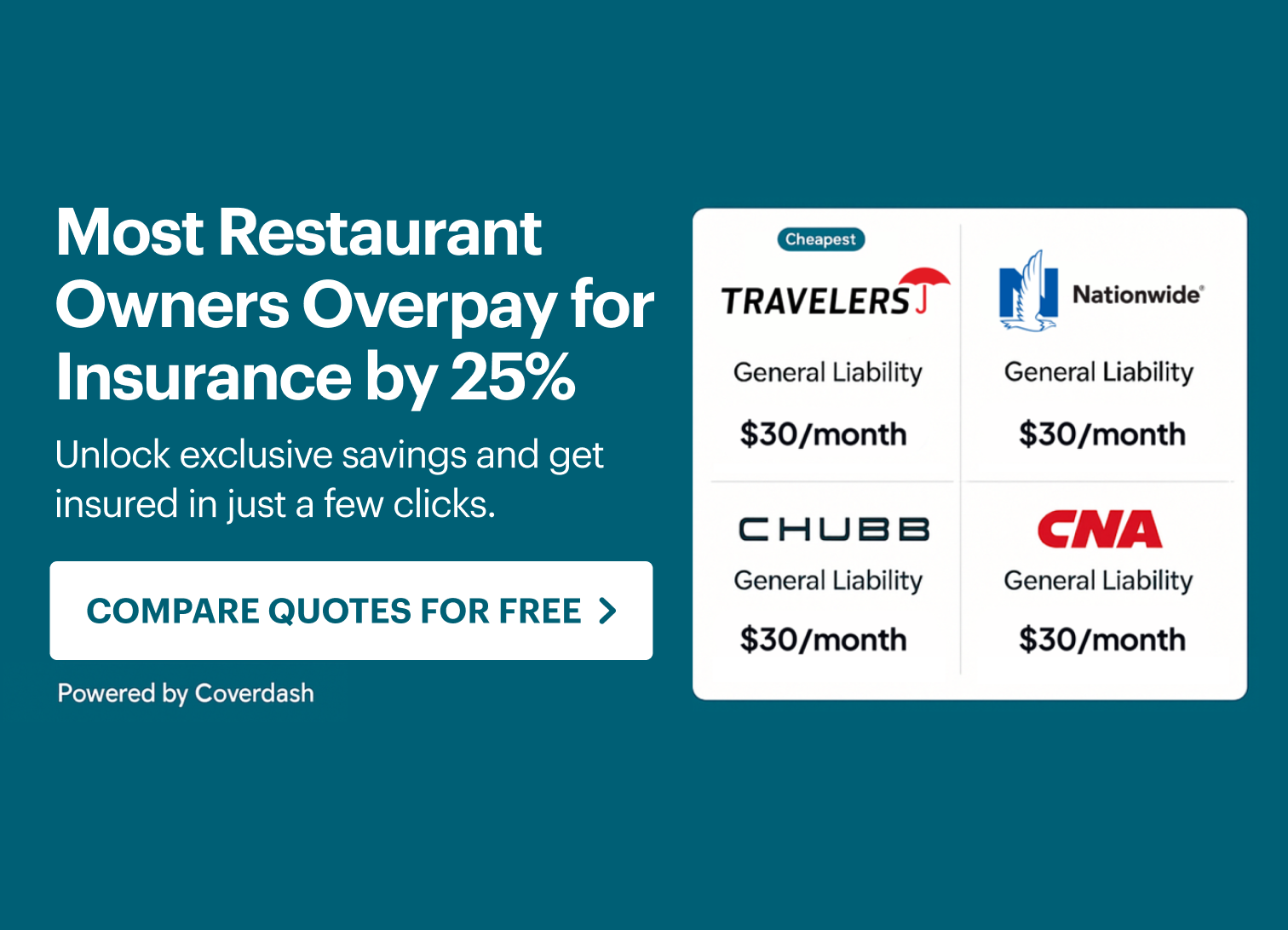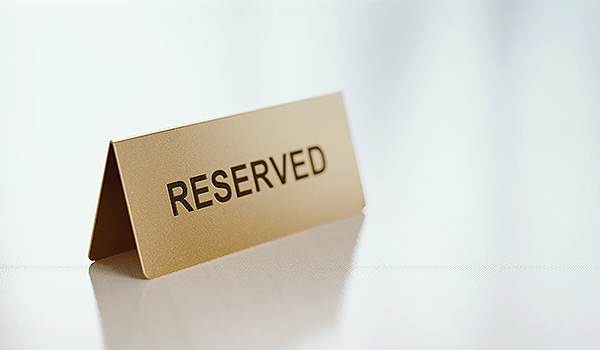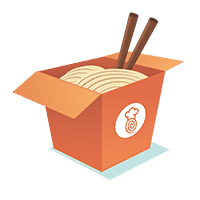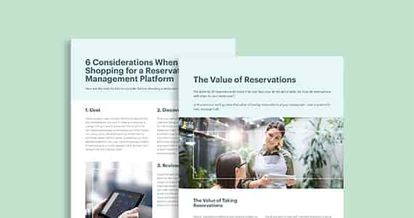Deciding whether or not to take reservations is a choice that every new restaurateur has to make. Some establishments require reservations for all diners, while others don’t allow reservations at all. The rest fall somewhere in between.
There’s no right or wrong answer for whether to take reservations. It depends on your restaurant concept, the amount of dining space you have, and the experience you’re aiming to give customers.
Advancements in technology are making an ever-evolving impact on the way restaurants operate. One technological innovation, in particular, that’s made significant changes to how restaurant owners and staff conduct business is the online restaurant reservation system.
The traditional phone call approach is now commonly substituted by the internet for booking restaurant reservations. A large variety of restaurant reservation systems with well-designed and customizable front-end user interfaces are now available in the marketplace.
In this guide to restaurant reservations, you’ll learn:
- The benefits of investing in a reservation system
- How reservations are beneficial to the various restaurant roles
- The positive business impact for restaurants that take reservations

5 Benefits of a Restaurant Reservation System

Here are a few specific ways that you’ll benefit from having a restaurant reservation system set up at your business:
1. Increased Accuracy
A reservation system reduces the amount of errors that could potentially be made when taking reservation information over the phone, such as date, time, and party size. When customers book online, there’s less risk of these errors occurring because the customer is inputting the information themselves.
The online reservation system automatically checks for any conflicts when customers make their selection, such as table availability. This way, customers are able to readjust their booking information to guarantee a restaurant seating.
A reservation system will protect you from overbooking or double booking because all of your mobile, desktop, and call-in reservations will be in one place.
If a customer decides to cancel a reservation, your system will even automatically repopulate this reservation time so that another customer can book that table. This ensures you’ll have the most accurate view of seating availability and won’t be reserving tables for guests who aren’t coming.
2. Flexibility
With online booking capabilities, customers are able to reserve at their own convenience – anytime or from anywhere in the world! Customers avoid having to make a phone call, which can be difficult. If the restaurant is busy, customers may be faced with long waits. If they’re closed altogether, diners will have to wait to call back and make a reservation when they’re open or book somewhere else that they can chat with at that moment.
3. More Predictable Wait Times
Restaurants that take reservations help save time for both restaurants and customers.
Businesses are able to optimize their restaurant seating layout and give guests a more accurate wait time. The reservation system will be able to predict these times based on the layout, table seating times, and even what course of the meal tables are at.
Customers who make a reservation in advance can better coordinate their restaurant arrival time. If the wait becomes longer than anticipated, the host can adjust expectations accordingly – maybe offer a complimentary snack or beverage!
4. Automated Reservation Reminders
Having automated reservation reminders as part of a reservation system frees up your staff’s time. These reminders can automatically send guests text or email notifications of booking details and waitlist updates. More of your host’s time and attention can be devoted to serving customers who are already present.
With two-way SMS notifications, guests can let you know in real-time if they’re running late or need to cancel the reservation. Reminders also help reduce no shows by minimizing the chance guests forgot about their reservations.
5. Customer Profiles
Reservation technology allows you to save customer information like contact details, how often they’ve visited, dietary restrictions, special dates and anniversaries, and even how much they’ve spent. You can use this customer information to create targeted and customized marketing campaigns with personalized promotions to encourage return visits and brand loyalty.
Additionally, you can enhance the experience for your guests if you know they will be coming in for a big celebration. Assign them to top performing staff or include a free dessert.
| ProTip:Even if you already have experience with restaurant reservation systems, there are many ways to optimize how you’re using these systems. Managing the mix between reservations and walk-ins can be a challenge, especially during peak times. Considering that the average rate of no-shows for a typical restaurant is around 20%, restaurants are at risk of losing out on revenue from empty tables.To help effectively manage a mix of walk-ins and reservations, consider placing a time limit on reserved tables. Make sure to clearly communicate this policy to guests when they book an online reservation during peak business hours to avoid customer confusion or disappointment. Typically, restaurants, give a 15 minute grace period.For more tips on how to improve your reservation system management approach, read this blog post. |
Restaurant Roles that Benefit the Most from a Reservation System
The positive effects of a restaurant reservation system have a lasting impact on the overall experience for everyone involved in your restaurant. Here’s a breakdown of how each restaurant role benefits from an online reservation system:
Managers
A major responsibility for managers is knowing what’s going on at their restaurant so that they can communicate accordingly, coordinate staff and forecast inventory. When managers know exactly how many guests to expect at what times through the reservations system, they can ensure that the correct amount of staff are on onsite across all the departments, including servers and kitchen staff. They will also be able to predict a rush based on historical data and prepare kitchen staff.
Hosts
Online restaurant reservation systems enable hosts to better anticipate when tables will turn over. This helps the host predict and communicate to customers more accurate wait times for restaurant seating, especially for walk-ins. In return, customers have a better sense of expectation and can manage their time accordingly, like perhaps by going elsewhere for a drink while they wait.
Additionally, when guests are able to book reservations online, the host will be able to focus on incoming customers instead of taking down reservation information over the phone.
Servers & Kitchen Staff
These two significant areas of the restaurant work best when they are aligned, so effective and constant communication is critical. With restaurant reservation systems, servers are able to predict how many tables they will be working at any given time. With knowledge of when the next reservation will be showing up, servers can communicate with the kitchen staff on which orders need to be prioritized. This helps the back of house organize themselves while helping the front of house speed up the delivery of food so that guests finish eating at the appropriate time.
In addition, when customers book a reservation, they are able to share details about why they are attending, such as a birthday or anniversary celebration, mention any food allergies, or indicate a specific area they’d like to be seated. The front-of-house team will be able to communicate to the back-of-house team on specific requirements, especially related to food allergies, and provide a better dining experience when they can anticipate customers’ needs.
Guests
Even with all the benefits, a restaurant reservations system offer the team at your restaurant, it can be easily argued that your diners are the ones who benefit the most. They have peace of mind knowing that a table is guaranteed for their desired date, time, and party size. When they arrive, they don’t risk having to wait for a table to open up.
With the help of SMS notifications, guests who make reservations won’t have to worry about losing their table if they’re running late because they can communicate directly with the host.
Customers also benefit from reservations by being able to request special accommodations – like dietary restrictions – when they make a booking.
For returning customers, making a reservation is even easier. If your reservation management system already has the customer’s information, all they have to do is choose the time they want to reserve a table. The saved customer information (like birthdays, anniversaries, favorite dishes, or allergies) then helps inform the staff on how to create the best dining experience.
How Restaurant Reservation Systems Help Your Business Grow
You can easily see how a restaurant reservation system benefits the overall operations and customer experience of your restaurant – but it doesn’t stop there! When you use a restaurant reservation system that integrates with your point of sale (POS) system, your total revenues can be significantly impacted in a positive way.
Here are three ways your bottom line is positively impacted.
1. Reservations Are Maximized
Restaurant reservation technology can greatly increase your revenue by maximizing the number of reservations you’re able to take on any given day.
For example, when a server closes a table on your restaurant’s POS and changes its status to available, your reservation system will automatically allow guests to book it online. This feature saves the host from manually having to check the POS for table availability and update the reservation system.
2. Efficiency in Operations
Confirmation of booked reservations helps the front-of-house team facilitate cost-effective and efficient restaurant operations, including menu options and the amount of food to be prepared. If you can anticipate how much food to have prepared and ready to go, you can minimize food and beverage waste, saving you money.
3. Customer Acquisition
Data shows that up to 68% of restaurant goers have tried a new restaurant because of a positive review they read. Your restaurant reservation system can actually help you collect these positive reviews!
Some restaurant reservation systems can send automatic messages promoting guests to write a review of their experience. If positive, they’ll help you get more customers. If negative, it’ll give you the chance to learn and improve upon the dining experience for your guests.
Summary
Everybody in your new restaurant will benefit from a restaurant reservation system, and it may even be easier to set one up from the start instead of once you’re up and running!
Hosts will be able to seat guests immediately at their preferred tables. Servers will know beforehand any specific needs guests have indicated. Kitchen staff will be able to anticipate how much food they need to prep. Overall, restaurants that take reservations build long-lasting relationships with your customers, which will ultimately lead to a strong bottom line.
Sign up for our free weekly TouchBistro Newsletter





